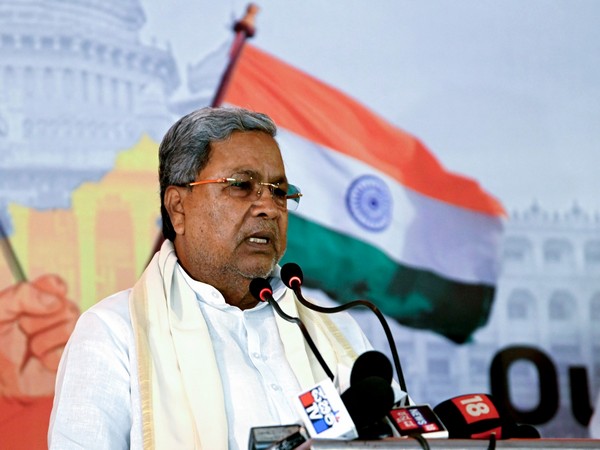


Karnataka's Chief Minister Siddaramaiah has announced plans to release the state's highly-anticipated caste survey report, which has faced opposition from various societal segments. The report, initiated by the Congress party, will be presented to the cabinet next month after previous attempts were hindered. Siddaramaiah's decision to move forward with the findings highlights the significance of effectively addressing historical inequalities through data-driven policy-making.
Siddaramaiah's Caste Survey Report: Addressing Historical Inequalities in Karnataka
Background
In Karnataka, India, the Indian National Congress party under the leadership of former Chief Minister Siddaramaiah has been working on a comprehensive caste survey. The objective of the survey is to collect detailed data on the socioeconomic conditions of various caste groups in the state.
The caste system has historically played a significant role in Indian society, resulting in systemic discrimination and marginalization of certain castes. To address these inequalities, the Karnataka government initiated the caste survey in 2015.
Siddaramaiah's Announcement
In a recent move, Siddaramaiah, who is now the Leader of the Opposition in the Karnataka Legislative Assembly, has announced plans to release the long-awaited caste survey report. According to Siddaramaiah, the report will be presented to the state cabinet next month.
This announcement comes after previous attempts to release the report were met with resistance from various societal segments, including opposition parties and some caste groups.
Significance of the Report
The release of the caste survey report is considered a significant step towards effectively addressing historical inequalities in Karnataka. Data-driven policy-making based on the survey findings can help policymakers design targeted interventions to bridge socioeconomic gaps between different caste groups.
FAQs
1. What is the purpose of the caste survey? The caste survey aims to collect data on the socioeconomic conditions of various caste groups in Karnataka, including their representation in education, employment, and other key areas.
2. Why is the caste survey controversial? Some opponents of the caste survey argue that it could exacerbate existing caste tensions or create divisions within society.
3. What are the potential benefits of the survey? The survey findings can provide policymakers with valuable data to design targeted interventions and policies to address caste-based discrimination and promote equality.
4. What is the current status of the report? Siddaramaiah has announced plans to release the caste survey report to the state cabinet next month.
5. What impact could the release of the report have? The report's release could reignite debates about caste-based reservations and other affirmative action policies in Karnataka. However, it could also provide a basis for data-driven policy-making to address historical inequalities.

The Pasighat police in East Siang district, Arunachal Pradesh have arrested the 33-year-old boys' hostel warden of Sanggo English School for sexually assaulting minor students. This came to light when a student was hospitalized for urogenital complications. The incident has sparked outrage from parents and the public, demanding strict action against the accused warden. In response, the Arunachal Pradesh State Human Rights Commission (APSHRC) has taken suo motu cognisance and ordered for a detailed report on the investigation, victim protection, and school management.

Actress Siddiqa Begum, daughter and legal heir of Shah Bano, has served a legal notice on the makers of the upcoming Bollywood film 'Haq'. The notice states that the film's unauthorized depiction of the personal life of Shah Bano without the consent of her legal heirs is a violation of their rights. 'Haq' is based on the landmark 1985 Supreme Court case that granted maintenance to Shah Bano, a Muslim woman, from her divorced husband.

After four years, the 'Darbar Move' tradition in Jammu and Kashmir has been restored, fulfilling the promise of the government and bringing a boost to the economy. National Conference chief Farooq Abdullah expressed happiness, noting that those who sought to separate Jammu and Srinagar have failed. Chief Minister Omar Abdullah received a warm reception and inspected the secretariat premises after the ceremony, as security in the region was heightened for the occasion.

Delhi Legislative Assembly Speaker Vijender Gupta praised Swami Dayanand Saraswati as not just a saint and reformer, but also a pivotal figure in India's freedom struggle. Speaking at the International Arya Samaj Conference, Gupta highlighted how Swami Dayanand's teachings sparked a revolution that led to the nation's independence. The event was attended by esteemed guests including Gujarat Governor Acharya Devvrat and top officials from the Arya Samaj community, all paying tribute to the enduring impact and legacy of Swami Dayanand Saraswati.

The Metro Railway Kolkata has announced a major schedule expansion for its Yellow Line, which runs between Noapara and Jai Hind Bimanbandar (Airport) in Kolkata. Starting from 3 November, weekday operations will increase to 120 services with extended operating hours, providing greater convenience and accessibility to commuters. Weekend travellers will also see a significant frequency upgrade, making travel on Saturdays and Sundays hassle-free. This move is expected to improve the overall public transportation system in the city and benefit the commuters.

Despite some reassurances that online verticals focused on diversity will continue, NBC News has announced a round of layoffs that will impact about 150 employees, or 2% of their workforce. The cuts are said to be a result of cost-cutting measures in preparation for the split of Comcast's cable networks into Versant. This move signifies a shift in priorities for NBC management, prioritizing corporate profits over hard-working members, according to Susan DeCarava, president of The NewsGuild of New York. This change also means that MSNBC will no longer lean on NBC News for newsgathering, with those ties expected to be severed next week.

The Kasibugga Venkateswara Temple in Srikakulam district was the site of a heart-wrenching stampede, causing multiple fatalities and affecting the community deeply. Chief Minister N. Chandrababu Naidu has expressed his sorrow over the unfortunate incident, as well as directing officials to ensure that those injured receive the best medical treatment possible. As local officials and public representatives are called to oversee relief operations, swift action is required to aid those affected and manage the situation effectively.

Indian Prime Minister Narendra Modi inaugurated the Shanti Shikhar Academy for Peaceful World in Raipur, praising the Brahma Kumaris organization for bridging India's ancient wisdom with the world's search for harmony. He credited the group's selfless service and spiritual discipline for their efforts towards universal peace. He positioned the Brahma Kumaris as protectors of India's soul and highlighted India's proactive role in addressing global crises such as disaster relief and environmental threats.

In an act of solidarity and protest, millions of Muslims in India used their Friday prayers to denounce the recent killings that took place in Pahalgam. The news comes amid growing tensions between the Muslim community and the Indian government. Many are viewing this as a sign of unity and determination from the Muslim population in India.

The state of Karnataka, or Kannada Rajyotsava, marked its 69th anniversary with a grand ceremony organized by the district administration in Mangaluru. District in-charge minister Dinesh Gundu Rao paid tribute to the leaders and writers who fought for a unified Kannada state and presented awards to 80 outstanding individuals and organizations. In his address, the minister highlighted the rich cultural and historical heritage of Karnataka and called for a sense of pride among its citizens.